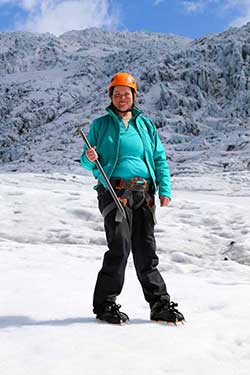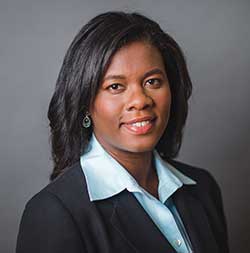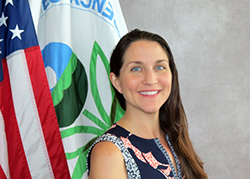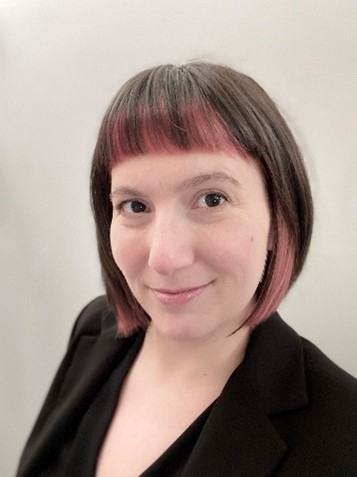FRTR Presents...Per- and Polyfluoroalkyl Substances (PFAS) Emerging Characterization and Remedial Technologies, Session 1
Sponsored by: Federal Remediation Technologies Roundtable (FRTR)
Archived: Thursday, June 20, 2019
FRTR Presents...Per- and Polyfluoroalkyl Substances (PFAS) Emerging Characterization and Remedial Technologies, Session 1
2019-06-20
Federal Remediation Technologies Roundtable (FRTR)
This is part of a webinar series featuring presentations delivered at the Fall 2018 FRTR Meeting and related material. The meeting's objective was to identify and discuss the emerging science behind PFAS characterization and remedial technologies. This session will include the following topics:
- What are PFAS, and What are the Issues with Them?
- Treatment Technologies for PFAS Site Management
Upcoming FRTR Presents Series Webinars
FRTR Presents Series Archives
- FRTR Spring 2025 General Meeting: Innovative Approaches to Characterization and Survey of Complex Mixtures of Contaminants in Support of End-State Regulatory Compliance (Session 2 - Technologies) (May 14, 2025)
- FRTR Spring 2025 General Meeting: Innovative Approaches to Characterization and Survey of Complex Mixtures of Contaminants in Support of End-State Regulatory Compliance (Session 1 - Strategies) (May 13, 2025)
- FRTR Presents ... TRAC — A Tool for Tracking Groundwater Restoration Across Multiple Sites (Dec 4, 2024)
- FRTR Fall 2024 General Meeting: Source Differentiation and Risk Assessments for Sites Impacted by PFAS (Oct 29, 2024)
- FRTR Spring 2024 General Meeting: Artificial Intelligence and Machine Learning to Optimize Site Remediation (May 21, 2024)
- FRTR Presents...Recent Advances in PFAS Characterization Technologies (Feb 28, 2024)
- FRTR Fall 2023 General Meeting: Recent Advances in PFAS Characterization Technologies (Nov 7, 2023)
- FRTR Spring 2023 General Meeting: Best Practices and Recent Technical Advances in Site Characterization and Conceptual Site Model Development (May 16, 2023)
- Application of Robotics, Machine Learning and Artificial Intelligence Technologies to Site Remediation (Jun 13, 2022)
- Application of Robotics, Machine Learning and Artificial Intelligence Technologies to Site Remediation (Jun 6, 2022)
- FRTR Fall 2021 Meeting, Two Part Series on Remedy Protectiveness and Climate Resilience in Site Cleanups: Session 2 (Nov 15, 2021)
- FRTR Fall 2021 Meeting, Two Part Series on Remedy Protectiveness and Climate Resilience in Site Cleanups: Session 1 (Nov 8, 2021)
- FRTR at 30 Years: Grand Challenges and Opportunities for Advancing Remediation Technologies, Session 2 (May 26, 2021)
- FRTR at 30 Years: Grand Challenges and Opportunities for Advancing Remediation Technologies, Session 1 (May 19, 2021)
- FRTR at 30 Years: A Retrospective of Applied Innovative Technologies for Successful Site Remediation (Nov 18, 2020)
- FRTR Spring 2020 Meeting, Session 2: Bioremediation Advances - New Strategies, Optimization, and Performance Monitoring (Jun 5, 2020)
- FRTR Spring 2020 Meeting, Session 1: Bioremediation Advances - New Strategies, Optimization, and Performance Monitoring (May 29, 2020)
- FRTR Presents...Synthesizing Evolving Conceptual Site Models (CSMs) with Applicable Remediation Technologies (Apr 1, 2020)
- FRTR Presents...Modeling in Support of Site Remediation, Session 2 (Dec 4, 2019)
- FRTR Presents...Modeling in Support of Site Remediation, Session 1 (Nov 26, 2019)
- FRTR Presents...Per- and Polyfluoroalkyl Substances (PFAS) Emerging Characterization and Remedial Technologies, Session 2 (Sep 26, 2019)
- FRTR Presents...Per- and Polyfluoroalkyl Substances (PFAS) Emerging Characterization and Remedial Technologies, Session 1 (Jun 20, 2019)
- FRTR Presents...Evolution of Subsurface Remediation: Lessons Learned from Technical Challenges to Achieving Cleanup Goals - Part 2 (Oct 17, 2018)
- FRTR Presents...Evolution of Subsurface Remediation: Lessons Learned from Technical Challenges to Achieving Cleanup Goals - Part 1 (Sep 27, 2018)
- FRTR Presents...Remediation Technologies for Radionuclides and Heavy Metals in Soil, Ground Water and Sediments, Session 2 (Mar 28, 2018)
- FRTR Presents...Remediation Technologies for Radionuclides and Heavy Metals in Soil, Ground Water and Sediments, Session 1 (Feb 28, 2018)
- FRTR Presents...Heavy Metals-Mining Site Characterization and Treatment Session 3 (Aug 10, 2017)
- FRTR Presents...Heavy Metals-Mining Site Characterization and Treatment Session 2 (Jul 26, 2017)
- FRTR Presents...Heavy Metals-Mining Site Characterization and Treatment Session 1 (Jul 10, 2017)
- An Introduction to Green and Sustainable Remediation: What, Who, Why, and How (Jun 10, 2015)
- FRTR Presents: Large-Dilute Plumes: Challenges and Opportunities (May 1, 2013)
Accessibility, Recording, and Content Disclaimer
Rehabilitation Act Notice for Reasonable Accommodation
It is EPA's policy to make reasonable accommodation to persons with disabilities wishing to participate in the agency's programs and activities, pursuant to the Rehabilitation Act of 1973, 29 U.S.C. 791. Any request for accommodation should be made to Cindy Frickle at 703-603-8763 or frickle.cynthia@epa.gov, preferably one week or more in advance of the webinar, so that EPA will have sufficient time to process the request. EPA would welcome specific recommendations from requestors specifying the nature or type of accommodation needed. Please note that CLU-IN provides both alternate phone call-in options and closed captioning for all webinars, and requests for these specific accommodations are not necessary.
Webinar Recording
By participating in this CLU-IN webinar, you automatically agree to authorize recording of audio and visual content presented during this live event and consent to subsequent use of this recording in the public domain by the U.S. Environmental Protection Agency. This recording may include questions, comments and poll responses provided by you during the live event in addition to your name, voice, image or likeness. This recording will be made available after the conclusion of the live event as part of the CLU-IN webinar archives, and will remain available indefinitely. If you do not wish to consent to the recording, please do not join the live event, and contact Jean Balent at 202-566-0832 or balent.jean@epa.gov to discuss your concerns.
Content Disclaimer
This webinar is intended solely to provide information to the public. The views and opinions expressed as part of this webinar do not necessarily state or reflect those of the U.S. Environmental Protection Agency. It is not intended, nor can it be relied upon, to create any rights enforceable by any party in litigation with the United States, or to endorse the use of products or services provided by specific vendors. With respect to this webinar, neither the United States Government nor any of their employees, makes any warranty, express or implied, including the warranties of merchantability and fitness for a particular purpose, or assumes any legal liability or responsibility for the accuracy, completeness, or usefulness of any information, apparatus, product, or process disclosed, or represents that its use would not infringe privately owned rights.
Presenters:
 Linda Gaines, Ph.D., U.S. Environmental Protection Agency (Gaines.linda@Epa.gov)
Linda Gaines, Ph.D., U.S. Environmental Protection Agency (Gaines.linda@Epa.gov)
Linda Gaines is an environmental engineer and environmental health scientist. Previously, she worked as a consultant performing environmental site assessments and water and wastewater work. She then worked for the Texas Commission on Environmental Quality writing Title IV and V air permits and later RCRA hazardous waste permits. After earning her Professional Engineer's license, she went back to school for her Ph.D. to focus on environmental health, and now works in the Superfund Science Policy Branch in the area of human health risk assessments. She maintains the Superfund Chemical Database Matrix (SCDM) and the Regional Screening Levels (RSLs). The majority of her time is spent as the Superfund subject matter expert for per- and polyfluoroalkyl substances (PFAS).
 Ramona Iery, Ph.D., Naval Facilities Engineering and Expeditionary Warfare Center (Ramona.iery@navy.mil)
Ramona Iery, Ph.D., Naval Facilities Engineering and Expeditionary Warfare Center (Ramona.iery@navy.mil)
Ramona Iery is a Physical Scientist in the Environmental Restoration Division of the Naval Facilities Engineering and Expeditionary Warfare Center (NAVFAC EXWC). She has more than 10 years' experience in the field of environmental remediation. Her areas of expertise include fate and transport, site characterization, long term monitoring and remediation of contaminants like chlorinated solvents, petroleum hydrocarbons and emerging contaminants such as 1,4-dioxane and PFAS. She has been working with PFAS for the past five years in areas of site characterization, granular activated carbon treatment and regeneration and researching remedial technologies. Dr. Iery has published on PFAS treatment, taught workshops of PFAS, chaired PFAS sessions at conferences and served on the steering committee of the Emerging Contaminants Symposium. She is a member of the ITRC PFAS team.
Moderators:
 Jean Balent, U.S. EPA Technology Innovation and Field Services Division (balent.jean@epa.gov or 202-566-0832)
Jean Balent, U.S. EPA Technology Innovation and Field Services Division (balent.jean@epa.gov or 202-566-0832)
Ms Balent is on the staff of the EPA's Technology Innovation and Field Services Division where she has worked to collect and disseminate hazardous waste remediation and characterization information since 2003. Ms Balent manages the Clean Up Information Network website and actively supports online communication and collaboration resources available to EPA. She formerly worked with the US Army Corps of Engineers Environmental Engineering Division in the Buffalo District. Ms Balent was also a member of the SUNY-Buffalo Groundwater Research Group where she constructed and tested large scale models of groundwater flow. Ms Balent has also conducted research relating to the Great Lakes, environmental remediation, and brownfields re-development. She holds a Bachelor's degree in environmental engineering from SUNY-Buffalo and a Master's degree in Information Technology from AIU.
 Cindy Frickle, U.S. EPA Office of Superfund Remediation and Technology Innovation (frickle.cynthia@epa.gov or 202-566-0927)
Cindy Frickle, U.S. EPA Office of Superfund Remediation and Technology Innovation (frickle.cynthia@epa.gov or 202-566-0927)
Cindy Frickle is a physical scientist with EPA's Superfund program where she reviews and propagates technical information to site cleanup professionals through Clu-In, EPA forums, and interagency channels. Prior to joining EPA, she spent time characterizing contaminated sites, coring sediments, studying microbes, and teaching. She completed her Biogeology MS and Geology BS in the University of Minnesota's School of Earth Sciences.
Webinar Slides and References:
Webinar Slides and References:
-
 Slide Presentation for Linda Gaines, Ph.D., U.S. Environmental Protection Agency (343KB/PDF)
Slide Presentation for Linda Gaines, Ph.D., U.S. Environmental Protection Agency (343KB/PDF)
-
 Slide Presentation for Ramona Iery, Ph.D., Naval Facilities Engineering and Expeditionary Warfare Center (13.5MB/PDF)
Slide Presentation for Ramona Iery, Ph.D., Naval Facilities Engineering and Expeditionary Warfare Center (13.5MB/PDF)
Additional Resources:
If you have a suggested topic or idea for a future CLU-IN internet seminar, please contact:
Technology Integration and Information Branch
PH: 202-566-0832 | Email: balent.jean@epa.gov
Technology Integration and Information Branch
PH: 202-566-0875 | Email: adam.michael@epa.gov





